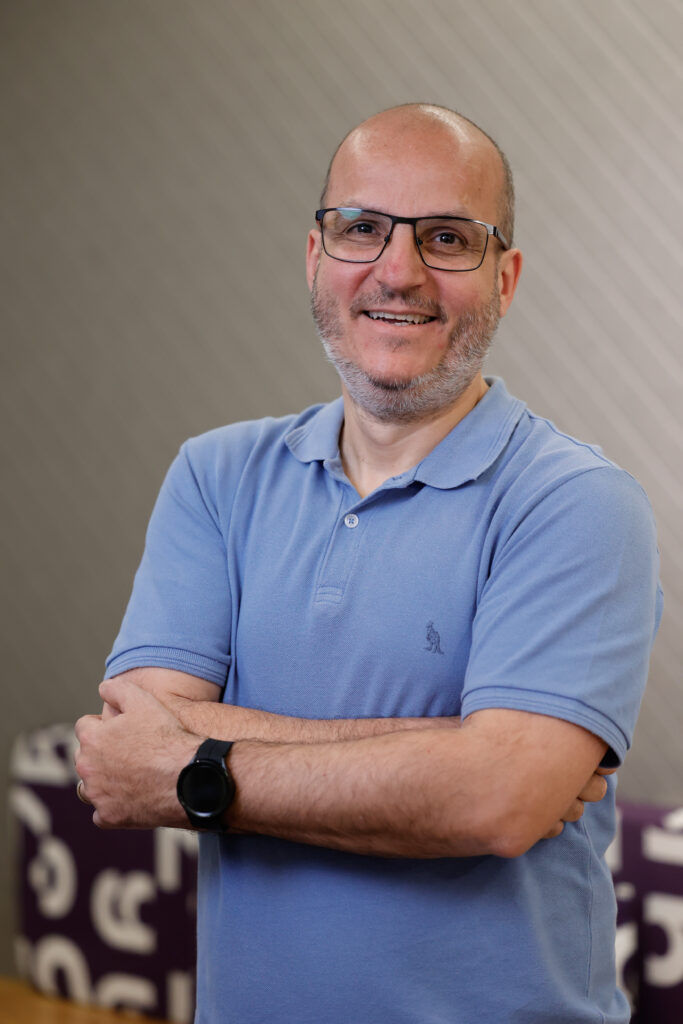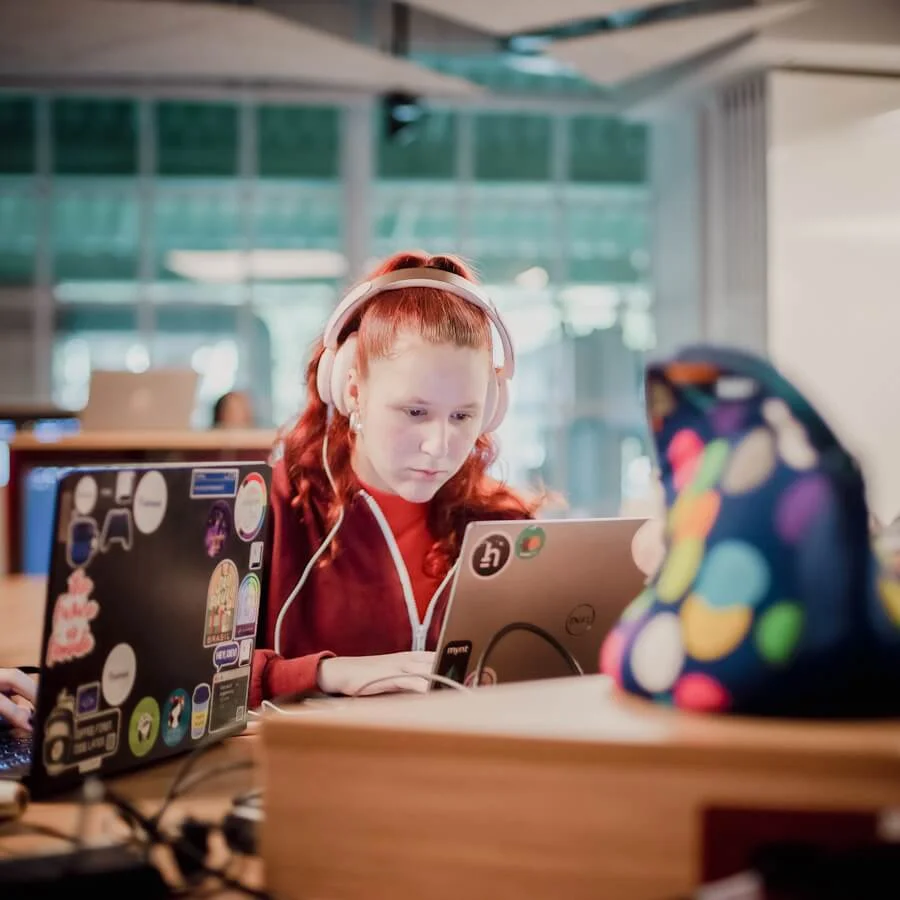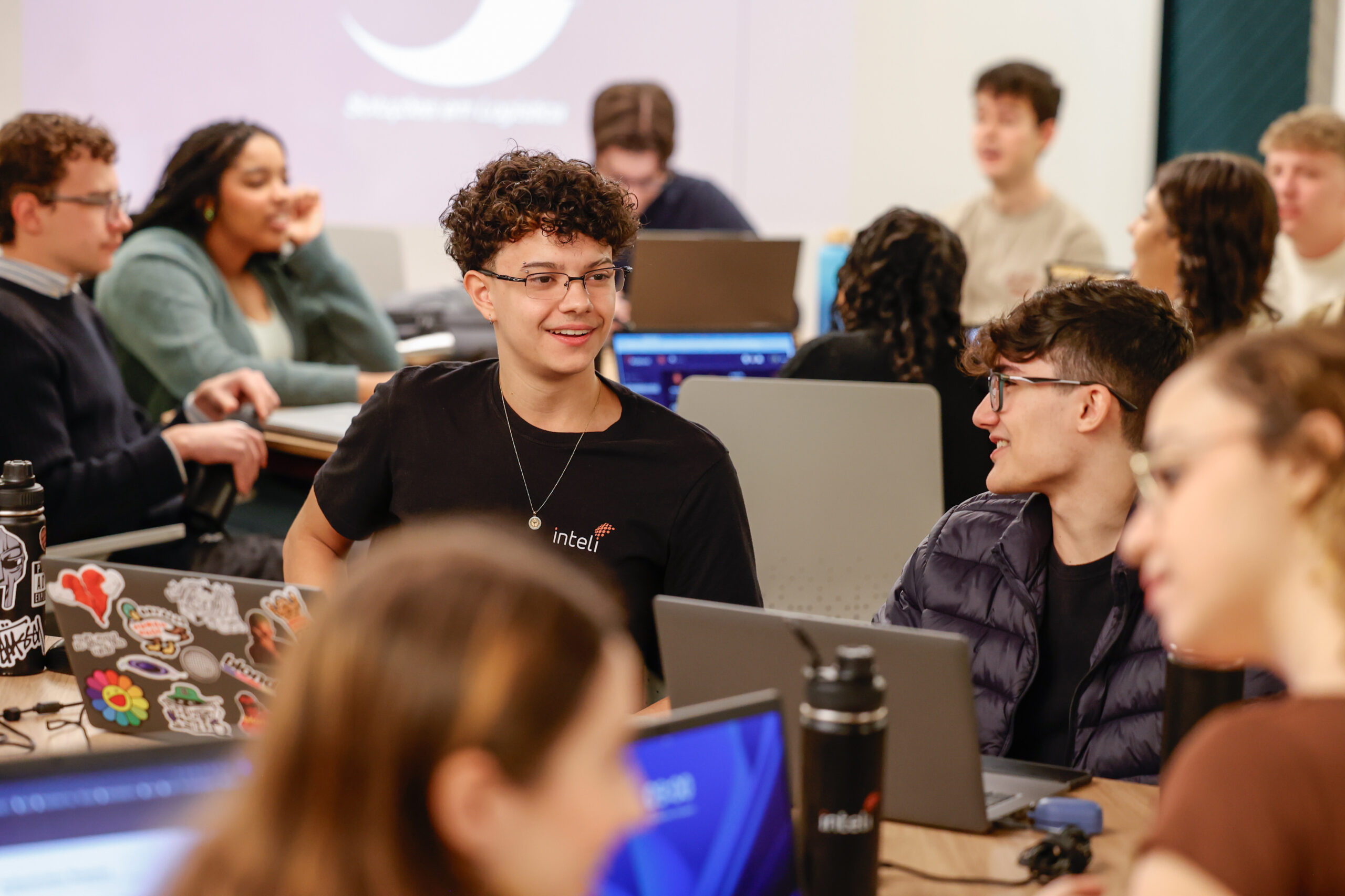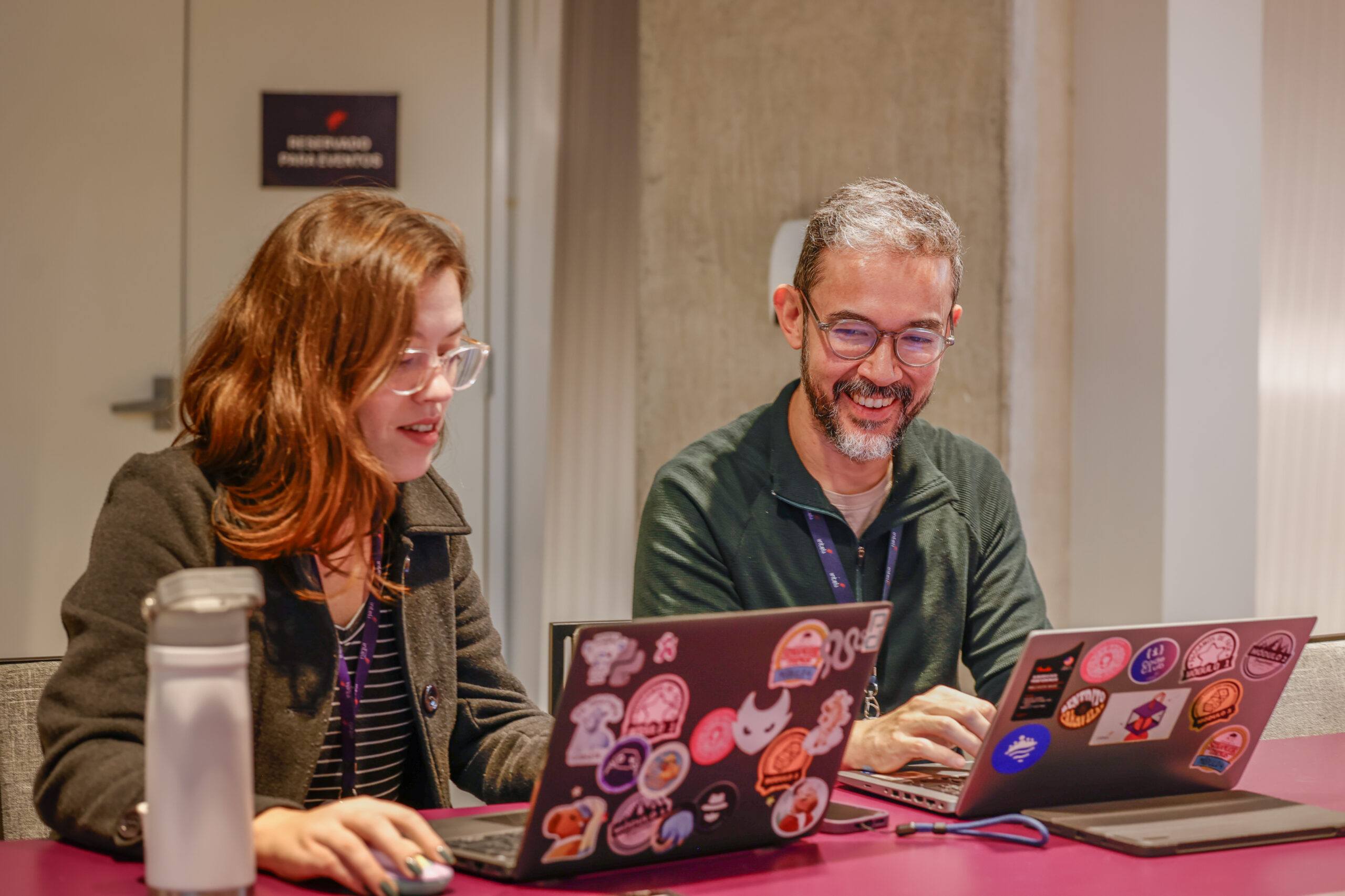
Hi, I'm a teacher and coordinator here at Inteli, and I want to demystify a common idea: Software Engineering is much more than just creating mobile apps. If you think this area is all about small screens and colorful icons, get ready to discover a universe of possibilities that shapes the technology we use every day.
Many people associate "software" directly with "cell phone apps", but the truth is that being a software engineer is like being an architect and builder of large buildings, but in the digital world. It's not just about the façade (the app), but the whole structure behind it: the foundation, the columns, the electrical and plumbing systems that make everything work safely and efficiently.
The engineering behind the software
At Inteli, we teach that Software Engineering is a complete process. It starts with a deep understanding of a problem, goes through the careful design of the solution, the construction of the code, rigorous testing and ongoing maintenance. It is a discipline that applies engineering principles to the development of all types of software, from embedded systems in cars and household appliances to large cloud infrastructures and artificial intelligence.

In our classes, for example, the projects go far beyond a simple "app":
- You will learn how to develop a distributed digital processing system. This involves creating software to solve complex problems using cloud architectures, with a focus on efficiency and reliability. It is the basis of services such as video streaming or large-scale social networks.
- We also worked on building a digital platform based on service-oriented architecture, which means developing the "skeletons" behind systems that allow communication between different applications - something that a simple "app" alone can't do.
- What about Natural Language Processing in text, video and audio? Here, you build systems that can "understand" human speech or text, something that ranges from virtual assistants to sentiment analysis on large volumes of data. This requires complex artificial intelligence solutions, not just user interfaces.
- My experience as a teacher always shows me how dedicated students are to projects such as secure and fault-tolerant digital architecture. They need to think about how to protect systems from attack and how to ensure that they continue to function even if something goes wrong. This is the layer of security and resilience that underpins any technological solution.
- Another important point is quality. In the Resilient Digital System project with quality as a software asset, you learn how to build automated tests that ensure the software delivers what it promises and works without unwanted surprises. It's a fundamental part of engineering.
- And to ensure that all this reaches the user quickly and safely, you'll be working with the Agile Software Production Treadmill. This is a set of practices that speed up the development and delivery of new functionalities, ensuring that the technology is always up-to-date and relevant to the business.
- Finally, Data architecture and governance aligned with corporate strategy shows that software engineers also deal with the organization and analysis of large volumes of data to help companies make strategic decisions. This is software engineering applied to business intelligence.
These examples demonstrate the breadth of Software Engineering. In my experience, the greatest satisfaction is seeing our students' ability to embrace these complex challenges, transforming ideas into complete, high-level solutions, often in partnership with real companies.
The job market

The job market recognizes this breadth. The World Economic Forum's "The Future of Jobs Report 2023" (2023) highlights technology as an engine for job creation, and BRASSCOM (2023) reinforces the high demand for IT professionals in Brazil.
So if your passion is to build, optimize and innovate with technology, Software Engineering is a vast field full of opportunities that goes far beyond applications. It's a field for those who want to design the digital future. Come to Inteli and be part of this construction!
Renato Penha
Coordinator of the software engineering course and professor of business at Inteli
References:
BRASSCOM. Sector Report 2022. IT Macrosector. 2023. Available at: brasscom.org.br.. Accessed on: 26 Aug. 2025.
WORLD ECONOMIC FORUM. The Future of Jobs Report 2023. 2023. Available at: www.weforum.org.. Accessed on: 26 Aug. 2025.




